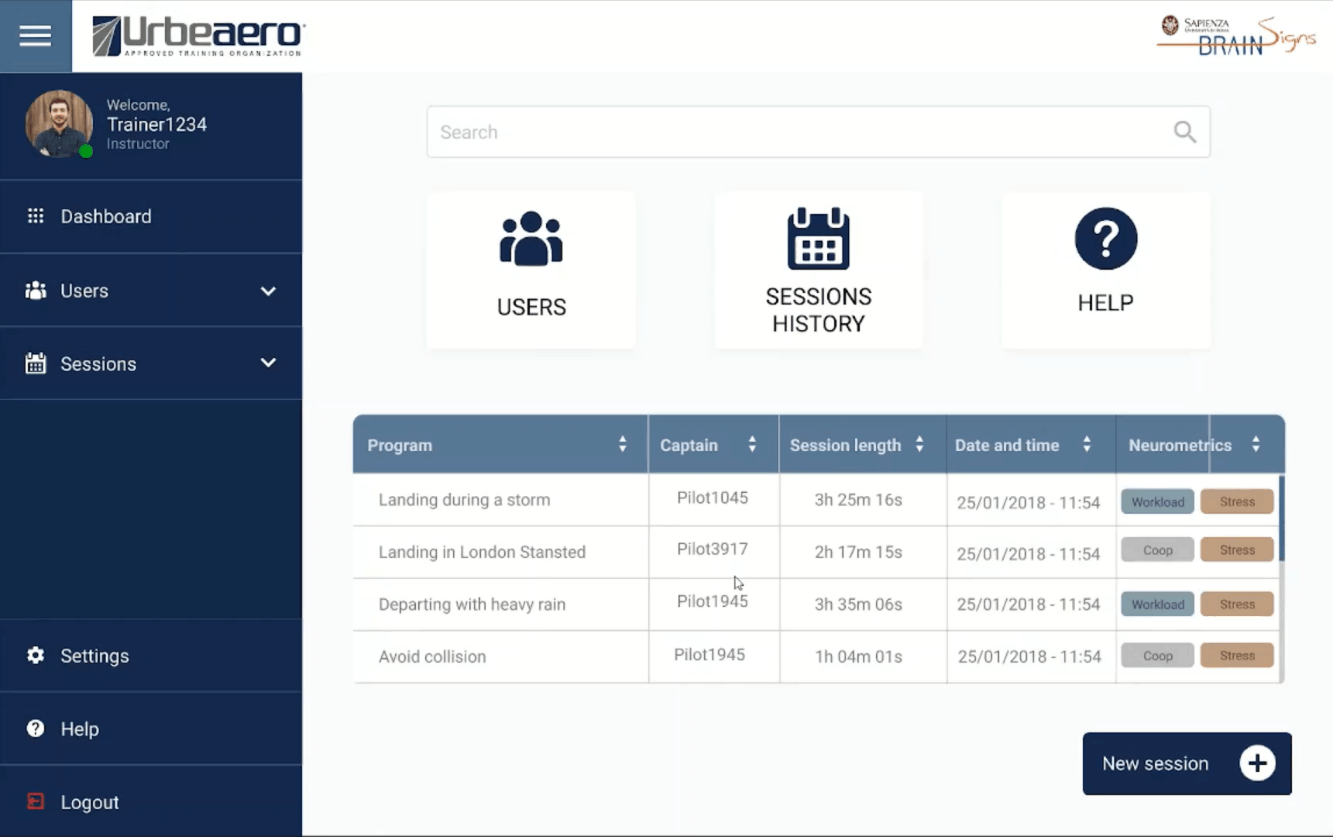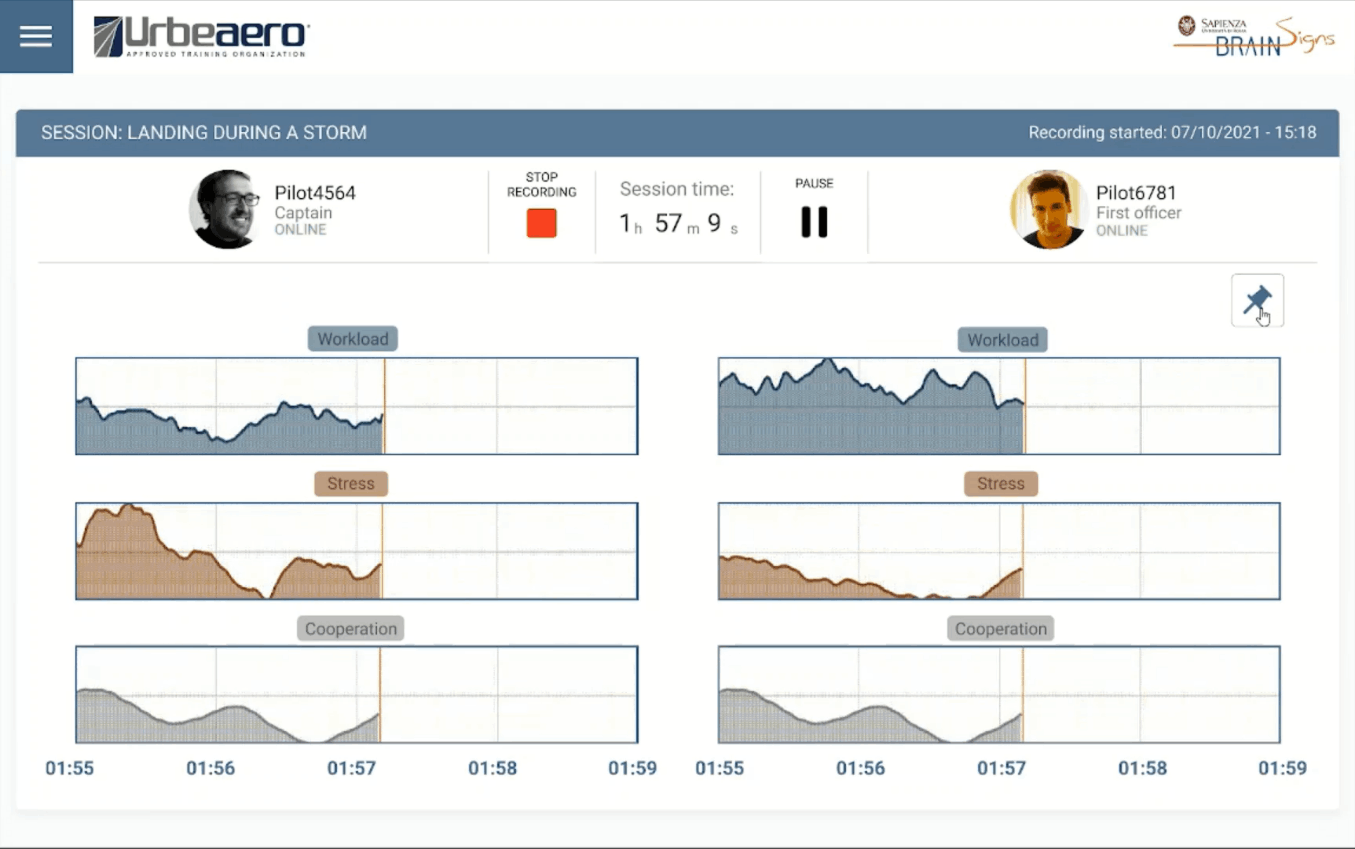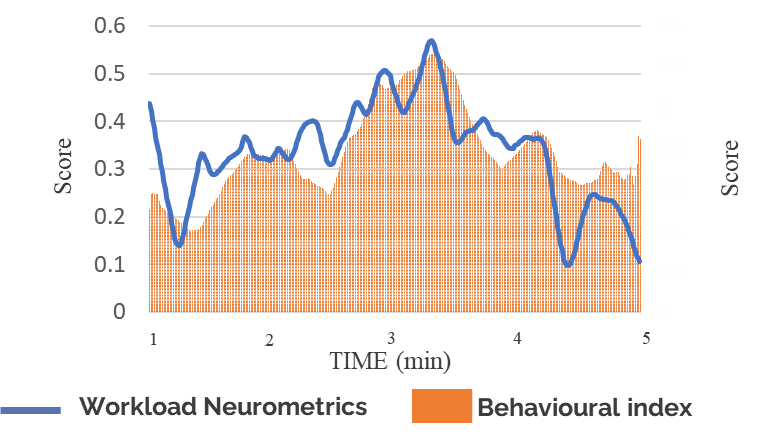
Figure 1.1
Pilot’s training home page.
Mindtooth Validations
Mock-ups of a specific dashboard to be used by a pilot trainer have been developed, with the idea to allow the measurement of neurometrics during (online) and after (debriefing) the training sessions.

Pilot’s training home page.

Crew selection page.

Real time neurometrics recording page.
The experiment consisted of different operational scenarios, which were defined with the support of UrbeAero experienced trainers. These scenarios required managing operational activities that elicit workload, stress and cooperation when performed by experienced and unexperienced pilots crews, each wearing their own Mindtooth prototype headset. Validation has been run in a professional simulator, the Mechtronix Ascent XJ Trainer Boeing 737-800.
During this validation test there were two trainers, one trainer, acting as usual in a training session (i.e. providing messages to the crew), and another trainer expert and asked to rate levels of workload, stress and cooperation by using a tablet app, specifically developed for the experiment requirements.

Experimental settings used for the experiment with pilots
The Mindtooth system has been used to measure the three neurometrics of workload, stress and cooperation. In parallel, the expert trainer performed a subjective assessment of the same human factors concepts.
The data collected from six crews of experts and novices were analyzed in order to measure correlations between the subjective and neurophysiological assessment, in order to verify the effectiveness of the system as a whole, as well sa validate the three indicators of Workload, Stress and Cooperation with the trainer’s evaluation.

The workload neurometric is correlated with behavioural index, as assessed by the trainers

The stress neurometric is aligned with different phases of the operational scenario at different levels of stress.

The time of cooperative behaviours of experienced crews was significantly higher than inexperienced crews.
These results are a proof of concept that a tool like Mindtooth is able to collect user insights, useful for the overall evaluation of a training session with the advantage of being unobtrusive with respect to task execution or trainee interactions. The validation test demonstrated that the Mindtooth system is able to process the operators’ neurophysiological data in real-time to provide the instructor with objective measures (i.e. neurometrics), which are potentially very helpful for their assessment.
Those related to the single-pilot’s mental state (i.e. Workload and Stress) are interesting for tailoring training programs for the individual trainee. Moreover, the UrbeAero Training Team involved in the experiment has been very interested in the measurement of cooperation between the 2 pilots operating as a crew, because this provides an objective way to assess team dynamics.
This validation was performed in 3 different contexts:
Pilot Training | Automotive Simulator | Industrial Workers